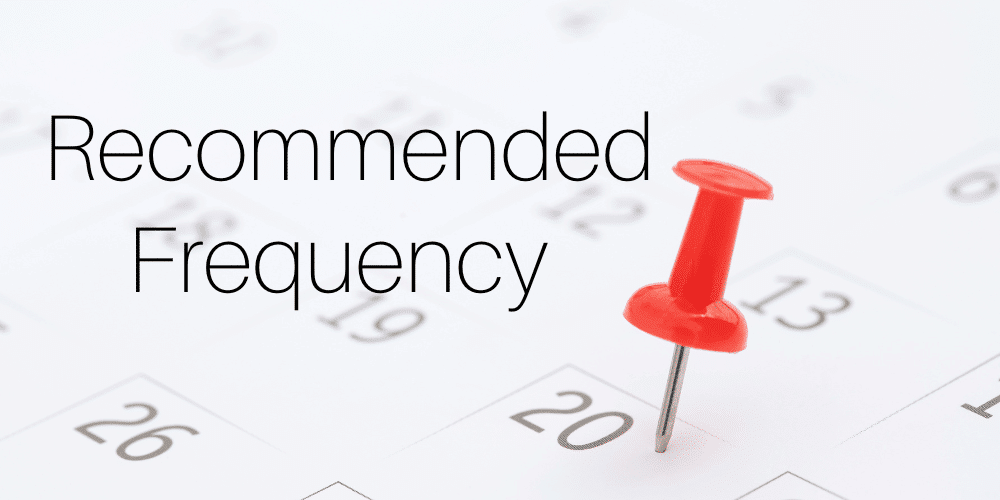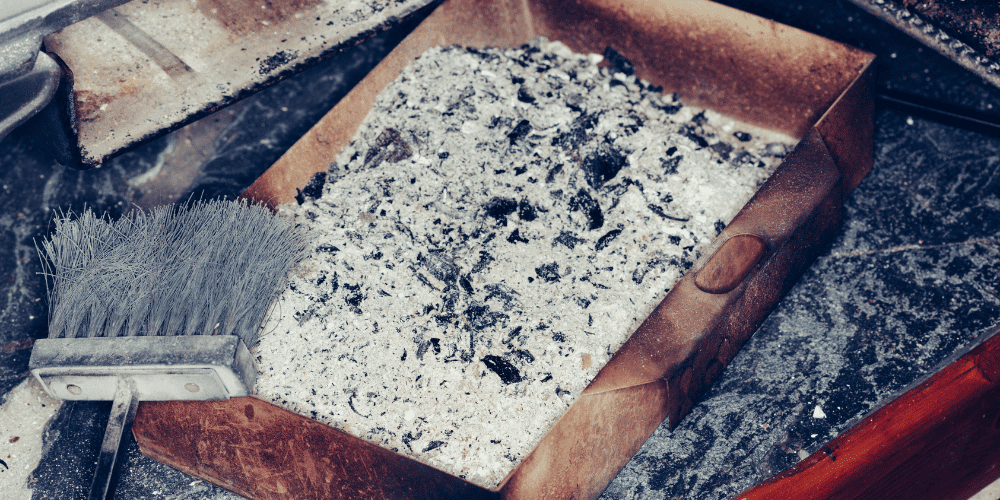How Often Should You Get Your Chimney Cleaned?
Chimney sweeping is an essential aspect of maintaining a safe and functional fireplace or wood-burning stove. Over time, soot, creosote, and other debris can build up inside the chimney. This increases the risk of chimney fires and carbon monoxide poisoning. Regular cleaning can also improve the performance of the fireplace, reducing smoke and improving heat output.
Here, we’ll explore how often you should get your chimney cleaned to ensure it is operating safely and efficiently. We’ll also discuss the factors that affect the frequency of cleaning and provide guidelines from the National Fire Protection Association (NFPA).
Additionally, we’ll cover the risks of neglecting chimney cleaning and the signs that your chimney needs cleaning. Finally, we’ll weigh the pros and cons of DIY chimney cleaning versus hiring a professional chimney sweep. And we’ll provide recommendations for choosing a reputable professional.


Factors Affecting Frequency of Chimney Cleaning
The frequency at which you should clean your chimney depends on several factors that can vary from household to household. In this section, we’ll examine these factors and how they can impact the recommended frequency of cleaning. First, we’ll look at the usage of the fireplace. Homes that use their fireplace frequently will require more frequent cleanings than those that use it only occasionally. This includes homes that use it as their primary source of heat. Or those that use it daily during the winter months. Secondly, the type of fuel burned can also affect how often you need to clean your chimney. Wood-burning fireplaces produce more creosote and soot buildup than gas fireplaces or pellet stoves. Burning unseasoned wood or other improper fuels can also lead to more buildup. Thirdly, the age and condition of the chimney can impact the frequency of cleaning. Older chimneys or those in poor condition may require more frequent cleanings to ensure they are safe to use. Finally, the location and climate of the home can also affect how often the chimney needs to be cleaned. Homes in areas with higher levels of air pollution or those with bouts of extreme weather may require more frequent cleanings. By understanding these factors, you can better determine how often you should clean your chimney.
Recommended Frequency of Chimney Cleaning
To ensure the safe and efficient operation of your chimney, it’s important to know the recommended frequency of cleaning. In this section, we’ll discuss guidelines from the National Fire Protection Association (NFPA). We’ll also look at other factors that may require more frequent cleanings. The NFPA recommendation is that you have an annual chimney inspection and swept as needed. This guideline is based on the assumption of regular usage of the fireplace during the winter months. Homes that use their fireplace less frequently may be able to go longer between cleanings. However, it’s important to note that these guidelines are just a starting point. The frequency of cleaning should be adjusted based on the factors we discussed in the previous section. Additionally, certain circumstances may require more frequent cleanings. For example, homes with a history of chimney fires or those with poor air quality may require more frequent cleanings. Similarly, homes that burn unseasoned wood or other unsuitable fuels may need more frequent cleanings. Special considerations should also be made for gas fireplaces. While gas fireplaces produce less creosote and soot buildup than wood-burning fireplaces, they still require regular cleaning and inspection. Gas fireplaces can develop blockages or other issues that can lead to carbon monoxide poisoning or fires. So it’s important to have them inspected regularly by a professional. By following these guidelines and considering these factors, you can determine the recommended frequency of cleaning for your chimney.Risks of Neglecting Chimney Cleaning
Neglecting chimney cleaning can have serious consequences for the safety and function of your chimney. In this section, we’ll discuss the risks of neglecting chimney cleaning. This includes chimney fires, carbon monoxide poisoning, and structural damage to the chimney. One of the most significant risks of neglecting chimney cleaning is chimney fires. When soot and creosote buildup inside the chimney, it can ignite and cause a chimney fire. These fires can be very dangerous, and can quickly spread to other parts of the house. In some cases, they can cause structural damage to the chimney or even the entire house. Another risk of neglecting chimney cleaning is carbon monoxide poisoning. Carbon monoxide is a toxic gas that is produced when fuel is burned. If the chimney is blocked or not functioning properly, carbon monoxide can build up inside the home. This can cause serious health problems or even death. Regular cleaning and inspection of the chimney can help prevent carbon monoxide poisoning. Finally, neglecting chimney cleaning can also lead to structural damage to the chimney. When debris builds up inside the chimney, it can cause corrosion, decay, or other types of damage to the chimney. This can lead to costly repairs or even the need for a complete chimney rebuild. By understanding the risks of neglecting chimney cleaning, you can better appreciate the importance of regular cleaning and inspection.
